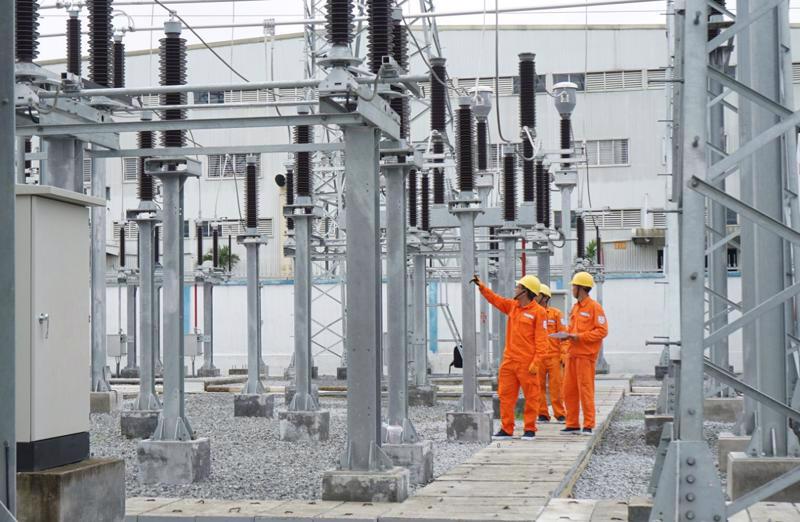Vietnam Electricity (EVN), the country's largest power company, was quoted by the Vietnam News on May 23 as stating that the rumour about Vietnamese authorities urging certain businesses in northern Vietnam to voluntarily reduce electricity usage by 30 per cent is inaccurate.
According to the English-language daily newspaper, EVN claimed that it has not and does not have a plan to advise businesses to cut down on their power use.
Rumours of energy-saving measures started circulating after two unidentified sources talked to a major news service, stating that precautionary notices were sent to more than one manufacturer in order to avoid a repeat of last summer's power shortages in the North.
The news service went on to quote their sources as saying the notices were "an encouragement," not a requirement and had not had any impact on production.
According to EVN, the country's power supply has remained stable since the beginning of the year.
Since the power shortage of 2023, the Prime Minister has stressed the importance of ensuring sufficient power supply for industrial activities across the country, saying there should be no shortfalls of electricity under any circumstances.
The Ministry of Industry and Trade (MoIT), Vietnam's supervising ministry over the power sector, said numerous measures have been taken to ensure an ample electricity supply during this summer. Managers and operators of power plants and systems were told to report to the ministry on a weekly basis.
EVN has established a steering committee to oversee the country's electricity network and task forces, which remain on standby for emergencies, as well as programs to promote voluntary energy-saving solutions. In addition, the power company has strengthened cooperation with local governments to stay up-to-date with the operations of all power plants across the country.
According to EVN, the measures have been working. Despite a 14.29 per cent increase in consumption compared to the same period last year, the electricity supply has been stable and sufficient. The company reported a maximum output of 56.89 billion kWh, a 142.5 per cent increase year-on-year for the first quarter of 2024, with all power sources being utilised including coal-fired and gas-fired power plants, renewable energy and hydropower.
EVN said an increase in demand for electricity as the economy recovers, along with early summer heatwaves, were anticipated and plans have been put into motion to address potential shortages.
Including imports, Vietnam's total electricity supply is projected at 310.6 billion kWh, a 10.4% increase compared to 2023. According to MoIT, measures have been taken to prepare scenarios in which power consumption reaches as high as 313.4 billion kWh.
Since the beginning of the year, there have been no reports of power shortages in the North despite some large businesses ramping up consumption by as much as 10 per cent. The ministry said no effort was and is to be spared to ensure a stable electricity supply in this summer.
Meanwhile, collaboration among large power users and local communities to conserve electricity has resulted in a more flexible production schedule to lessen the burden put on the national grid during peak hours.
According to a report by the ministry, from April 22 to 28, hot weather across the country resulted in higher demand. During that period EVN reported an average daily consumption of 946.6 million kWh, with the highest consumption recorded on April 26 at 993.974 million kWh.
In comparison to the same period in 2023, the national power output increased by 23.1 per cent as the Northern grid's daily output increased by 35.5 per cent, on average. But now that experts have predicted rain in the forecast, the system load is expected to remain steady and even decrease in the next few weeks.









 Google translate
Google translate